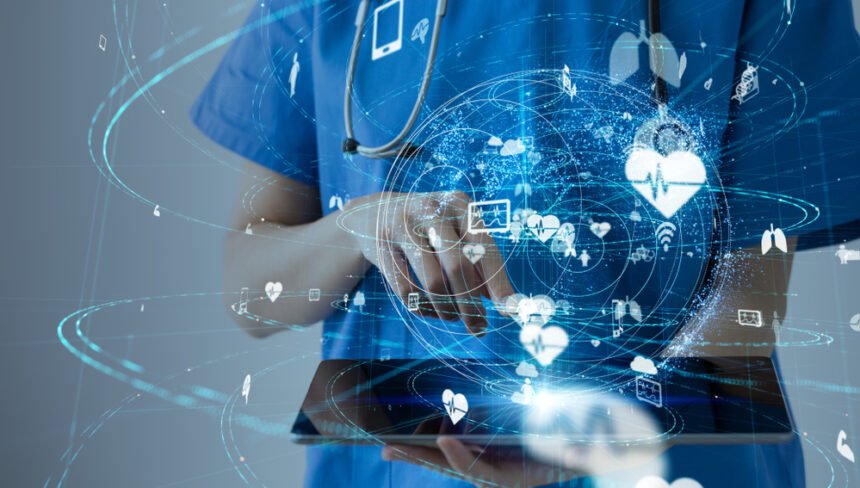If you haven’t heard of the Internet of Things, all you ned to know is that it covers everything connected to the internet, from smartphones to sensors, to wearable tech such as watches and tracking devices. Combined, these things can connect with systems to gather, analyse and create actions from the data supplied.
Health and medical devices that are connected to the internet and communicate with each other are known as the Healthcare Internet of Things (HIoT). In short, it is a network of smart tech that has potential for changing the way medicine works by embracing the increased connectivity, innovation and demand for new solutions to a wide array of conditions and diseases that affect so many of the population.
With development of new software allowing for medical devices to tap into the ease of collecting and communicating data, medical professionals are able to gain deeper insight into the lives of their patients, document trends, track symptoms and provide care remotely. Patients are now able to take more control over their medical needs and even save on costs associated with consultations and treatments by engaging with this technology.
The types of healthcare IoT that can benefit those in need are wide ranging, with the ability to aid and assist people suffering from a variety of medical problems. Here is a list of 5 of the current benefits to health that you should know about.
- Treatment for Cancer
HIoT has already had some documented results in easing the impact of cancer symptoms, in the example of a Bluetooth supported piece of tech that measured weight, blood pressure and provided an app for patients to track their symptoms.
This system was shown to help reduce the severity of symptoms experienced by cancer patients in comparison to a control group of patients without access to the smart tech. The care providers whose patients had access to the device were able to identify and rapidly address the onset of symptoms and side effects from cancer and its treatment, for the benefit of the patient’s health.
Another piece of smart tech in the battle against breast cancer is a bra designed to be worn for 2-12 hours, once per month, that contains tech to monitor circadian temperature in breast tissue. Data is transmitted to a lab for analysis and any abnormalities picked up. With a smart phone interface that goes with the tech, data can be submitted to by the patient to their healthcare provider, allowing for early intervention if problems are detected, something which is key to ensuring cancer patients have more treatment options and better results. See http://cyrcadiahealth.com/ for more details.
- Diabetes Management
Diabetes is seen in one in ten adults, and therefore incredibly prevalent in society. There are several devices available that can help in the management of diabetes such as Continuous Glucose Monitors (CGMs), which send data to apps on smartphones. These allow diabetics to monitor their blood glucose levels and easily check the data and identify trends, as well as seeing when they might need to administer insulin.
Smart insulin pens (such as Gocap and InPen) are also available which collect data such as when they are used, how much and what type of insulin they give. The pens also use this information to help diabetics calculate how much insulin they need when administering, reducing the potential for incorrect dosing.
- Mental Health Management
Mental health is increasingly a concern in society as something that needs better understanding and treatment, for both patients and medical professionals alike. Wearable smart tech is being used to help sufferers of depression monitor their moods and cognition – in the case of one app available on the Apple Watch. In preliminary studies carried out in 2017, one app asked users to monitor their mood daily, and complete cognitive tests. The data gathered allowed for more in-depth understanding for patients and healthcare professionals, enabling the possibility for more informative and targeted care.
Another form of wearable tech known as Moodables are delivering low-intensity current which stimulates the brain, to enhance mood and increase the effect of antidepressants – see https://www.haloneuro.com/ for more details on this project.
- Asthma Treatment
Smart tech is successfully helping some of the hundreds of millions of asthma sufferers around the world gain a deeper understanding of their symptoms and consequently better control over their treatment, for example by using what is known as the connected inhaler.
A sensor attached to an inhaler or spirometer connects to an app and collects data to aid knowledge of what causes a sufferer’s symptoms, as well as providing allergy forecasts and tracking the use of the medication, all of which have shown benefits in the consistency and frequency medication is taken by patients.
Doctors are able to see if patients are taking medication as it has been prescribed, and patients can see the direct improvements in their illness, something which may have contributed to their wide acceptance and approval by doctors and patients in recent years.
- Sleep Monitoring
Sleep is a key part of any healthy lifestyle, and HIoT is providing tech that allows monitoring of sleep patterns, duration, and even quality – which is then delivered to medical professionals and patients who are able to gain an insight into detecting issues affecting sleep and relating to lack of the same.
IoT is big business and here to stay, but in this evolving market there are issues to consider such as data protection, cost, and how quickly infrastructure used becomes outdated, which means that there is work to be done to mitigate these problems.
With the potential benefits that can be gained to help in the fight against many prevalent illnesses, HIoT has an ever increasing number of apps, devices and smart tech being added to the market by small and large companies alike, and it looks set to continue to push boundaries of healthcare as we know it.

